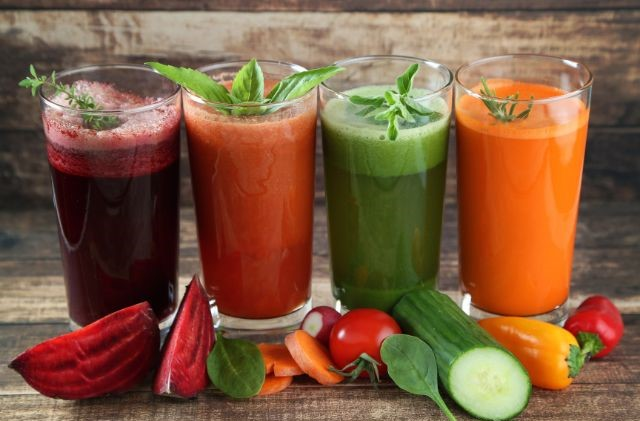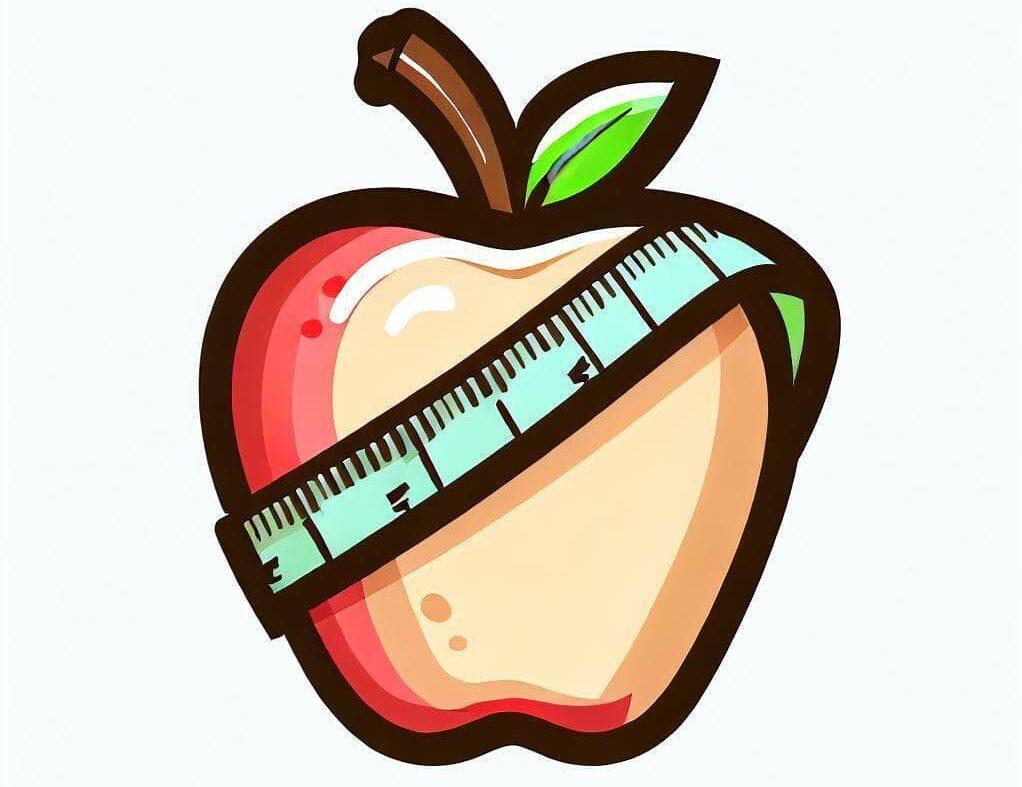Is Kombucha Good for Weight Loss?

“Is kombucha good for weight loss?” Yes, kombucha is good for weight loss as long as you opt for the organic version with no added sugar.
You see kombucha comes in different forms. This means different brands have different amounts of sugar content.
So you have to get the one with the lowest amount of sugar so that it doesnt impact your weight loss efforts.
All my clients who achieved their weight loss goals had one thing in common – they avoided high-sugar drinks.
So then what should you do with your love for kombucha and your weight loss goals? let’s find out.
Nutrition Value of Kombucha
As per the USDA, One 8-ounce (240mL) serving of kombucha provides the following nutrients:
Serving Size: 8-ounce(240ml)
Calories: 29
Protein: 0 g
Carbs: 8 g
Sugar: 8 g
Fiber: 0 g
Fat: 0 g
Potential Benefits of Kombucha for Weight Loss
Low in Calories
Organic Kombucha is low in calories compared to other sugary drinks.
As you can see above, a serving of 8 ounces has only about 29 calories. The reason is because they only contain 8 g of sugar per serving
This is much lower than sodas, juices, or energy drinks, which can have more than 100 calories and 20 grams of sugar per serving.
Now, the sugar content is not super low but it is still low enough to sneak it into your diet without derailing your weight loss goals.
The point is that when you replace your typical high-calorie drink with organic kombucha, it can help you reduce your calorie intake and prevent weight gain.
Probiotic Content
Kombucha is a source of probiotics, such as Lactobacillus nagelii, Gluconacetobacter, Gluconobacter, and Komagataeibacter, which have been shown to be helpful for weight loss.
Probiotics help produce substances called short-chain fatty acids, like acetate, propionate, and butyrate.
These substances can affect our hunger and how our body uses energy.
Some probiotics might even reduce the amount of dietary fat our body absorbs.
Instead, this fat gets passed out of the body. This means that even if you eat certain fats, your body doesn’t use all of them for energy; some are simply expelled.
Specifically, bacteria from the Lactobacillus family have been shown to do this, making your body take in fewer calories from the foods you consume thus aiding in weight loss.
Blood Sugar Levels
Green tea is a common base for kombucha and contains polyphenols. These polyphenols have been shown to improve insulin sensitivity and regulate blood sugar levels.
When your blood sugar levels are stable, it can prevent sudden spikes and crashes that can lead to increased hunger and potential weight gain.
By helping to stabilize blood sugar levels, kombucha might prevent overeating and help you maintain a balanced diet, which is essential in a weight loss journey.
Also Read: Best Energy Drink for Weight Loss
Downsides of Kombucha for Weight Loss
It May Lead to Excess Calorie Consumption.
I know you must be thinking “Wait didn’t you say kombucha is low in calories?”. Yep, I did for organic kombucha. Meaning the ones without any added sugar.
You see not all kombucha comes with just 8 g of sugar. Unfortunately, some may go as high as 15 g per serving which is clearly not weight-loss-friendly for you.
And since liquid calories are less filling than solid foods, this may cause you to overeat later on.
So if you are opting for kombucha brands with higher sugar content, you may stretch yourself more than you wish for on the calorie count.
It May Cause Bloating and Digestive Distress
Kombucha is carbonated and contains FODMAPs, which are types of carbohydrates that can cause gas, bloating, and diarrhea in some people, especially those with irritable bowel syndrome (IBS).
Kombucha also has a high acidity level, which can irritate your stomach lining and cause acid reflux.
If you have a sensitive digestive system, you may want to avoid or reduce your kombucha consumption or drink it with food to buffer the acidity.
It May Contain Excess Amounts of Caffeine
An organic kombucha contains very little amount of caffeine, but again some brands come with a higher amount of caffeine which may not be suitable for everyone.
I must say, that caffeine is not inherently bad for weight loss.
But when consumed at the wrong time it could disrupt your sleep, cause dehydration, or mess up your appetite regulation.
So watch out for that caffeine content or simply opt for the organic version. Which is what I recommend in the first place.
Also Read: Best Keto Shakes for Weight Loss
Tips to Incorporate Kombucha in a Weight Loss Diet
Choose Low-Sugar or Homemade Kombucha
As I said above, some commercial brands of kombucha are high in calories and sugar, which can counteract your weight loss efforts.
Look for products that have less than 10 grams of sugar per serving, or make your own kombucha at home with less sugar or natural sweeteners like stevia or monk fruit.
Pair with Healthy Foods
What do I mean by “healthy foods”?
Basically, foods that complement the benefits of kombucha, such as green leafy vegetables, whole grains, lean meat, etc.
Kombucha can also enhance the flavor and nutrition of salads, smoothies, and soups.
Just make sure to avoid pairing it with processed foods or drinks, such as soda, fruit juices, chips biscuits, etc.
Complement With a Holistic Lifestyle
Hate to break it to you but no matter how much kombucha you drink it’s not going to get you closer to your weight loss goals.
Because weight loss needs you to fight a war on multiple fronts. Meaning exercise, diet, good sleep, and managing your mental health.
If you are falling behind in any of these battles, the road to your ideal weight is going to get that much harder.
But when you develop a healthy routine that includes the above-mentioned things, you can enjoy drinks like kombucha without worrying too much about your calorie intake.
Also Read: Best Time to Drink Kombucha for Weight Loss
Alternatives to Kombucha for Weight Loss
So you are not able to find organic kombucha or you simply want more options that are similar. Here are they.
Rejuvelac

Rejuvelac is a type of fermented beverage crafted from grains like wheat berries, quinoa, or rye. The fermentation process gives it a distinctive citrusy and fizzy flavor profile.
This drink is not only refreshing but also a powerhouse of nutrients.
It is known to be rich in probiotics, which as I said are good for your tummy and it also contains a variety of digestive enzymes that aid in the breakdown of food.
Moreover, it is a source of essential minerals and vitamins that can contribute to overall health. Its nutrient profile makes it a good choice to include in a weight loss diet.
Tepache

Originating from Mexico, Tepache is a traditional fermented beverage made using pineapple peels, complemented with the sweetness of brown sugar and a hint of cinnamon.
This concoction results in a drink with a delightful sweet and tangy flavor.
Tepache is noted for its high antioxidant content, which can help protect the cells from damage.
Additionally, it is a good source of vitamin C, promoting immune health, and dietary fiber, which is beneficial for digestive health.
Kvass

Kvass is a Slavic beverage traditionally made by fermenting ingredients like rye bread, along with the addition of berries, herbs, and honey to enhance its flavor.
This drink has a dark hue and offers a unique malty and sour taste.
It is known to be a good source of B vitamins, which are vital for energy production and cell health, and iron, a mineral essential for transporting oxygen in the blood.
Fermented Vegetable Juice

This beverage is created by fermenting various vegetables in water, followed by straining to remove the solids.
While a range of vegetables can be used, beetroot is a popular choice due to its nutrient density.
The resulting juice has an earthy and savory taste, offering a rich source of vitamins and minerals essential for bodily functions.
Additionally, it contains nitrates known to have a blood pressure-lowering effect.
Water Kefir

Water kefir is a carbonated beverage produced by fermenting sugar water with water kefir grains.
This drink has a mild and sweet taste, which can be further enhanced with the addition of fruits or herbs.
It is a rich source of probiotics, which are beneficial for digestive health, along with antioxidants that help in protecting the cells from oxidative stress, and enzymes that assist in various biochemical reactions in the body.
Ginger Ale

Homemade ginger ale is a refreshing beverage made from a blend of fresh ginger root, lemon juice, honey, and sparkling water.
This drink offers a spicy and invigorating taste experience. Ginger ale is reputed to aid in digestion and can potentially alleviate nausea.
Moreover, it has anti-inflammatory properties that can help reduce inflammation in the body, and it may assist in regulating blood sugar levels, although individuals should consume it in moderation to avoid excessive sugar intake.
Also Read: Best Time to Drink Moringa Tea for Weight Loss
Conclusion
You can have organic kombucha in your weight loss diet.
But like I said, watch out for the ones that come with added sugar as those are the types you want to avoid.
And if you don’t find ones with low sugar, feel free to opt for an alternative that I mentioned.
And finally, you know what you gotta do to lose weight and it is not just about drinking kombucha.
Combine it with a holistic lifestyle.
So get going if you haven’t already!
FAQ
How much kombucha should I drink to lose weight?
Drink one to two servings (8 to 16 ounces) of kombucha per day as part of a balanced diet and lifestyle.
When should I drink kombucha for weight loss?
Drink it 30 minutes before your meal as it can help suppress your appetite, thus reducing chances of operating during meal time.
What does kombucha do to your tummy?
Kombucha may improve your gut health by providing probiotics that support a balanced gut microbiome. Kombucha may also cause bloating and digestive distress in some people, especially if they have a sensitive stomach or irritable bowel syndrome (IBS).
Is it okay to drink kombucha every day?
Yes, it’s okay to drink kombucha every day, but it should be consumed in moderation to avoid potential side effects like digestive discomfort or excessive calorie intake.
